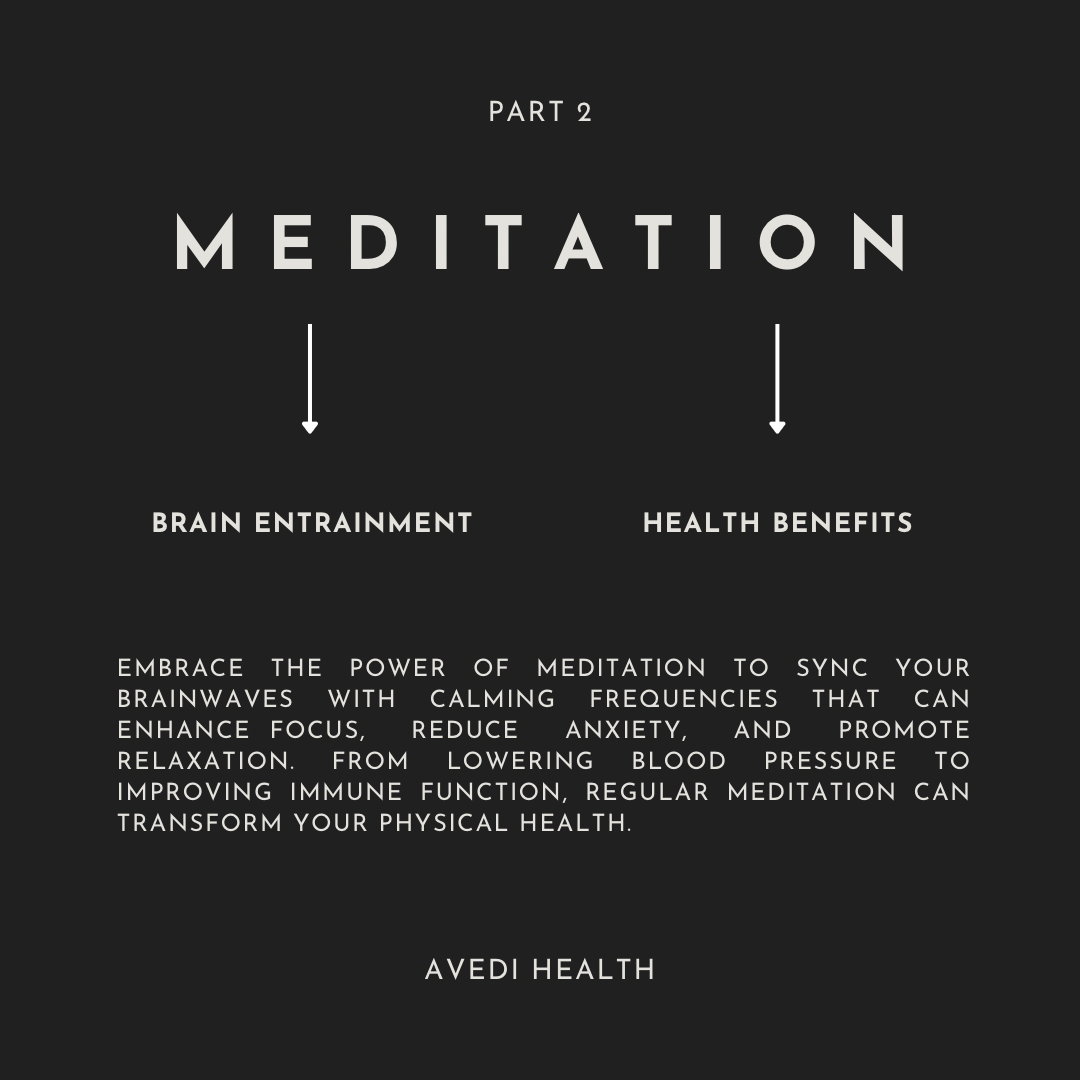Exploring the Wonders of Meditation: Neuroplasticity, Heart-Brain Entrainment, and Health Benefits
Meditation is an ancient practice with roots in various cultural and spiritual traditions that has garnered significant attention in modern science for its profound benefits on the mind and body. Here's how meditation can enhance your well-being through neuroplasticity, heart-brain entrainment, and various health improvements.
Neuroplasticity: The Brain's Ability to Reshape Itself
Meditation influences neuroplasticity, which is the brain's ability to form new neural connections throughout life. This adaptability allows the brain to recover from injuries, overcome old patterns, and acquire new abilities. Regular meditation has been shown to thicken the prefrontal cortex, enhance the density of gray matter, and improve areas responsible for attention, emotion regulation, and mental flexibility. This can lead to better control over emotions and increased mental clarity.
Heart-Brain Entrainment: Synchronizing for Coherence
Heart-brain entrainment is another fascinating aspect of meditation that involves the synchronization of physiological patterns between the heart and the brain. Techniques like mindful breathing and focused attention on the heartbeat can lead to a more coherent heart rate variability (HRV), which reflects the efficiency and resilience of the cardiovascular system. This entrainment can improve overall cardiac and mental health, reducing stress, and enhancing emotional stability.
Health Benefits: A Holistic Boost
The health benefits of meditation are extensive and include improved stress management, reduced symptoms of anxiety and depression, lower blood pressure, and enhanced immune response. Meditation also aids in better sleep patterns and can increase overall longevity. By reducing the wear and tear on the body caused by chronic stress and emotional turmoil, meditation helps in maintaining an optimal state of health.
Incorporating meditation into your daily routine can be a simple yet profound way to enhance your mental and physical health. Whether you are new to the practice or an experienced practitioner, the benefits of meditation can be realized by dedicating just a few minutes each day to this practice.
References
Lazar, S. W., Kerr, C. E., Wasserman, R. H., et al. (2005). "Meditation experience is associated with increased cortical thickness." *NeuroReport*, 16(17), 1893-1897.
Tang, Y. Y., Hölzel, B. K., & Posner, M. I. (2015). "The neuroscience of mindfulness meditation." *Nature Reviews Neuroscience*, 16(4), 213-225.
McCraty, R., Atkinson, M., Tomasino, D., & Bradley, R. T. (2009). "The Coherent Heart: Heart-Brain Interactions, Psychophysiological Coherence, and the Emergence of System-Wide Order." *Integral Review*, 5(2), 10-115.
Lehrer, P. M., & Gevirtz, R. (2014). "Heart rate variability biofeedback: how and why does it work?" *Frontiers in Psychology*, 5, 756.
Goyal, M., Singh, S., Sibinga, E. M. S., et al. (2014). "Meditation programs for psychological stress and well-being: a systematic review and meta-analysis." *JAMA Internal Medicine*, 174(3), 357-368.
Black, D. S., Slavich, G. M. (2016). "Mindfulness meditation and the immune system: a systematic review of randomized controlled trials." *Annals of the New York Academy of Sciences*, 1373(1), 13-24.






